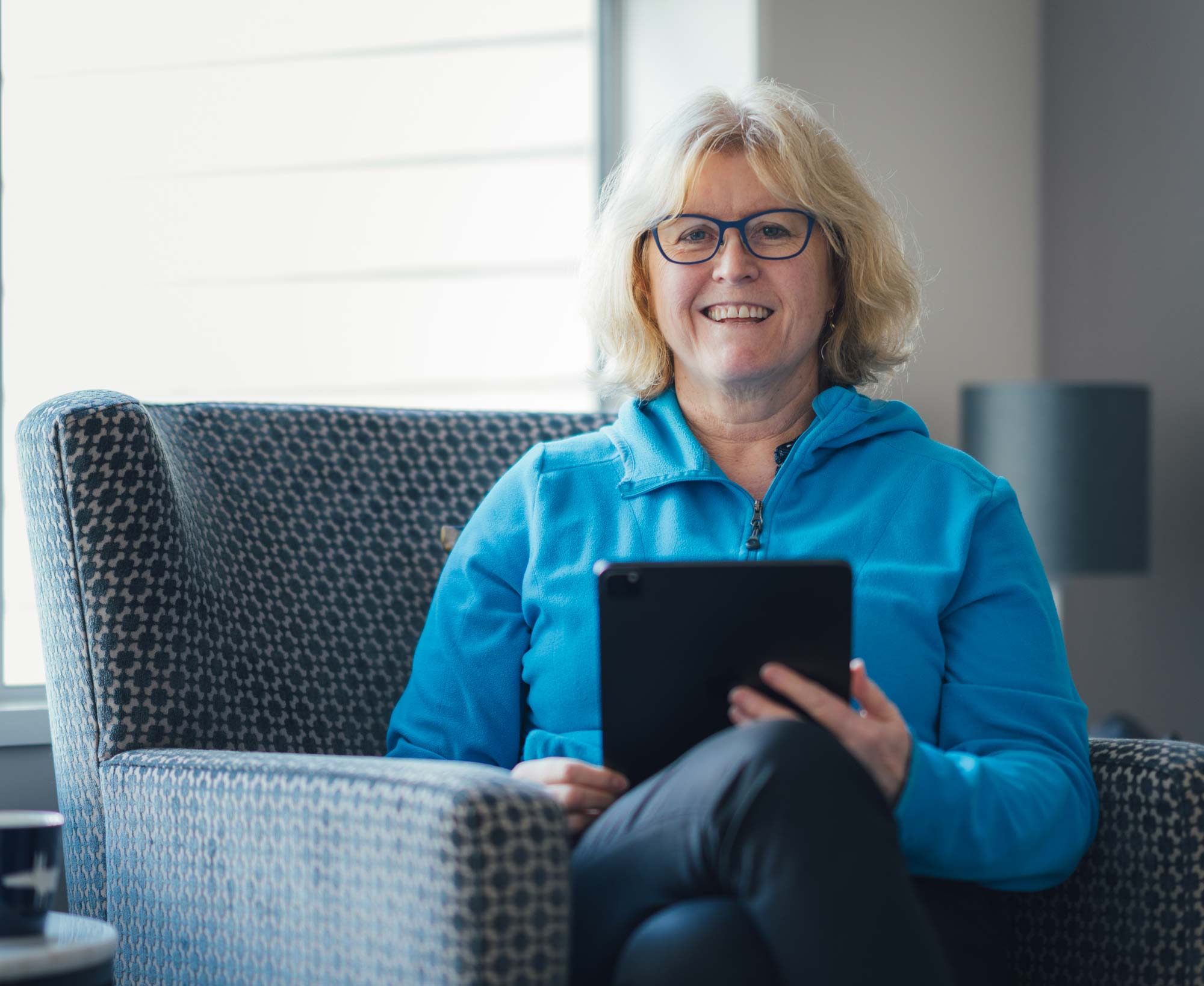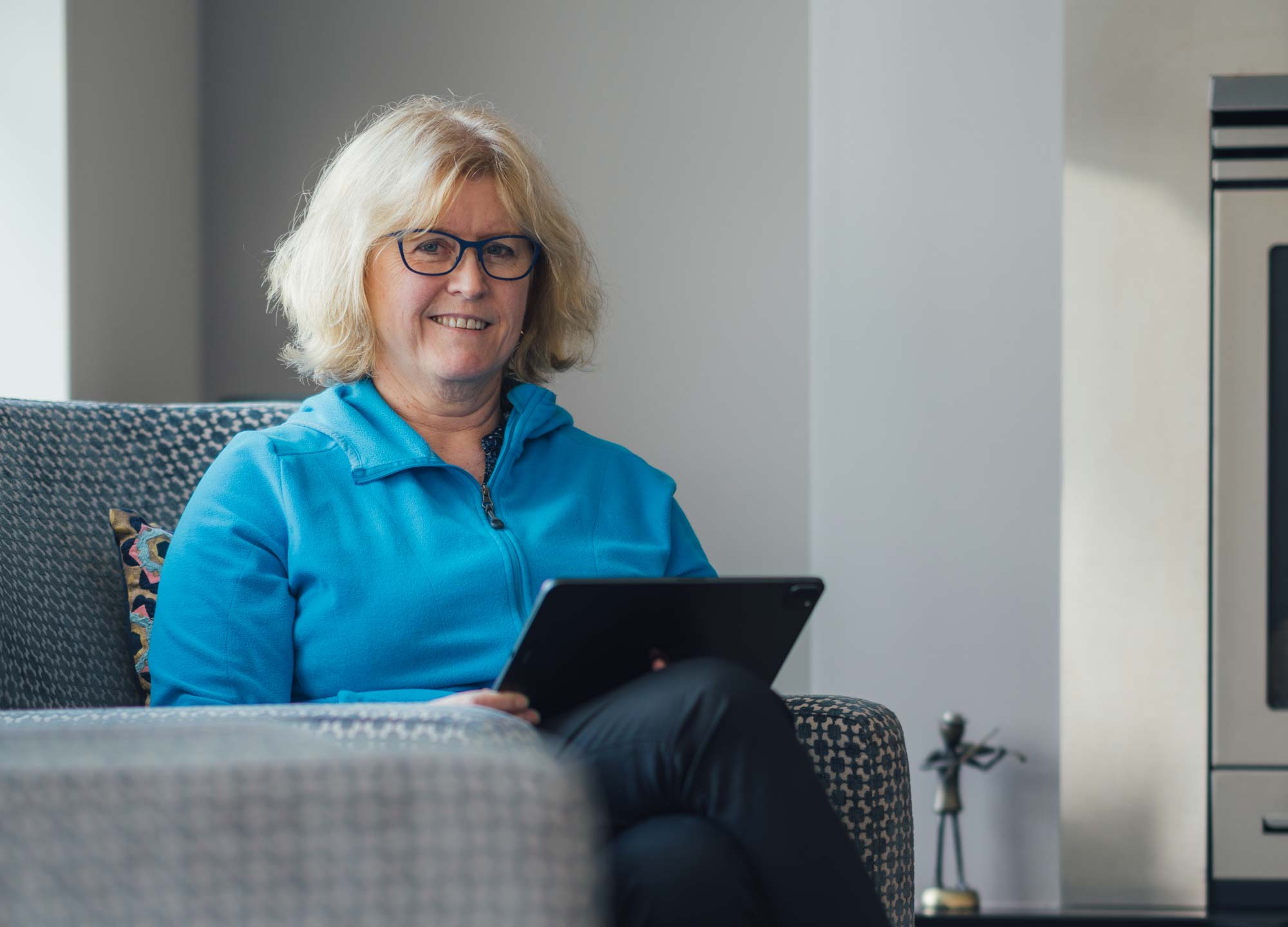Do you have a question? Want to learn more about our products and solutions, the latest career opportunities, or our events? We're here to help. Get in touch with us.
Do you have a question? Want to learn more about our products and solutions, the latest career opportunities, or our events? We're here to help. Get in touch with us.
We've received your message. One of our experts will be in touch with you soon.

For the first part of her career in the IT industry, Rose Ruane had to get used to being the only woman in the room.
As a young data clerk, then a computer operator and programmer who started in the industry in the late 1970s, Rose entered a workforce being transformed by technology but clinging to the social norms of old.
She wasn't your typical IT graduate. Instead, Rose went from high school to working on the family farm and milked cows for six months, then moved into a data clerk role in Auckland after giving up her dream career in medicine.
“My mother had a series of illnesses throughout her life and so I wanted to go into the medical profession,” says Rose, who grew up on a farm with her four sisters and two brothers.
A couple of day trips to hospitals convinced her that medicine wasn’t for her after all.
“I actually fainted in an operating theatre,” she remembers.
“I eventually realised I had an engineering brain. Dad never had time to fix the lawnmowers at home, so I’d do it.”

Rose first worked at Cutler-Hammer, a company that built industrial computers to manage hydroelectric power stations, for example, when an opportunity emerged for her to put her technical mind to good use. The company bought a Burroughs B1900 mainframe computer and needed someone to run it.
“I was given an aptitude test to see if I had what it took to operate the mainframe and get into programming. Unfortunately for my boss, I scored higher than he did.”
Those years spent establishing herself in her career left a lasting impression on Rose, who is now one of Datacom’s executive customer success leads in the technology services New Zealand team. Rose has just moved into this role having spent her first eight years at Datacom in various leadership positions across the application services business, with responsibilities across the delivery and support of many customers and their business-critical applications.

“Diversity is top of my mind when building teams. It’s not just about the smartest engineering mind, it’s about attitude and different ways of thinking. It’s about being able to relate and collaborate in multiple ways to ensure ongoing relevance.”
Datacom, and New Zealand’s tech sector in general, is ethnically diverse and was so even in the early stages of Rose’s career when she rubbed shoulders in the New Zealand Steel cafeteria with programmers from India, Malaysia, and the Philippines.
But decades on, women only make up around a quarter of the IT workforce, and Māori and Pasifika are underrepresented. It’s a situation Rose tries to tackle as she supports a new generation of women considering a career in tech-related fields, whether that’s mentoring students at Wellington ITC Graduate School or participating in speaking engagements at women's event within the industry.
It is also reflected in her approach to hiring talent.
“Some of the best project managers I have hired are women coming back off maternity leave because they know how to juggle a whole lot of balls in the air at once.”

Rose is also keen to encourage new recruits from diverse backgrounds who aren’t necessarily keen to get into coding or IT systems architecture.
“If you're a person who’s more consultative, you might actually fit well into business analysis, testing, or platform configuration. Find out what you’re passionate about and become excellent at it.
“Ultimately, we are people doing business with people. Learning to trust, needing to demonstrate empathy, and ultimately gaining a mutual understanding of what matters most is vital. To me, success is about getting inside the heads of customers, understanding what makes them successful while providing them with insight into the opportunities and challenges that technology presents.
”Facilitating collaboration, teamwork, and leadership is more important than ever as technology continues to evolve and automation changes the nature of our relationship with it.
“For me, it’s not a takeover; it’s a collaboration."
The COVID-19 pandemic has delivered the most change in the shortest period she’s seen in her entire career, which includes stints at Unisys, Electronic Data Systems (EDS), and HP before she joined Datacom in 2012.
“We thought the worst had happened in January and February with the devastating Australian wildfires. But since then, we’ve been thrust into this global pandemic that is so vast in its impact and accelerating change on a scale we are yet to really comprehend.”
With both her colleagues and public sector customers working from home during lockdown and more reliant on digital tools for communication and collaboration, it brought home to Rose the need to focus on the wellbeing of the people she works around and with.
Rose’s resilience, though, has been tested before in the most tragic way. Three years ago, Rose lost her husband, Mike, to cancer after a five-year illness. It capped off a particularly tough period for Rose during which her father, her brother-in-law, and her mother also passed away.
“When you are no longer a wife, a caregiver, a daughter or a sister-in-law, who are you?”
“It was a monumental personal shift in my life which presented major challenges. The experience gave me a more acute sense of awareness and empathy. It’s given me the ability to recognise what’s going on around me and to acknowledge that individuals may be struggling because of the copious changes caused by COVID-19 and need help.”,
Rose has seen a new hybrid working model at Datacom emerge as a result of the pandemic, with staff and customers embracing the digital workplace.
“Our challenge is to maintain our sense of humanity and learn how to stay connected in new and relevant ways,” she says.
The duality of humanity and business is also present in the public sector, particularly in political decision-making.
“If you think about the budgets now being delivered each year, it's not just about money anymore. There’s also a human element,” she explains.
“It's about wellbeing, the environment, and our communities. It's about a whole bunch of different aspects that go well beyond the bottom line but ultimately contribute to the bottom line.
“Our customers are changing the way they want to consume our services. Less long-term contracts, less bespoke software development and more agility, despite being constrained by the need to ensure compliance and consensus. Yet, with the existence of shadow IT, particularly in the public sector, there are a plethora of solutions hastily implemented to address pressing problems with less thought given to long-term consequences.
“The pandemic has added to the need for us to execute change faster than ever before to create a new normal which impacts the way we deliver services. This has changed, and will forever change, the way we work alongside our customers.
“The level of innovation is accelerating. Continuing to innovate is helping solve some of the big issues our customers and communities are grappling with. One thing will remain constant though — change will continue to surprise and challenge us in all aspects of our lives. Change is inevitable and is a part of what we do.”
What stands out for Rose above all things is maintaining our humanity within all of the communities that we exist, acknowledging and accepting our differences and the diversity and value those differences bring to the table.